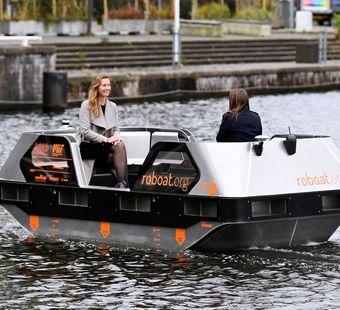This year, many traditional activities during the fasting month have had to be reimagined as Malaysians continue to adhere to the Movement Control Order (MCO). While physical Ramadhan Bazaars have been canceled nationwide, they have been reborn online.
To make this happen, bazaar traders, technology service providers and local and federal governments have collaborated to create e-bazaar platforms that are bringing quintessential Ramadhan delicacies right to the consumer’s doorstep. These include websites, apps and even Facebook Community groups that allow netizens to interact with and order directly from traders in their area.
The new normal
Although there is no matching the bustling atmosphere of the traditional Ramadhan bazaar, consumers are keen to try out the new services provided.
Residents of KL and Selangor enjoy an array of flexible options, including the e-Kitchen Platform Selangor (PLATS) where customers can order mouth-watering cuisine directly from the website or via the Grab app, Fashion Valet’s FVBazaar which offers a wide range of frozen and non-perishable food that ships from all over Malaysia, as well as more local and direct online Ramadhan Bazaar fares from the likes of Nak Makan and WatsapKita which give users the choice of purchasing from different traders for the same collective delivery fee. These sites have clear ordering guidelines, clean and easy to use interfaces as well as highly secure payment gateways, making them attractive to both the online-savvy user and nervous newcomers.
For those who would like to cut out the middle man as much as possible, sites like Bazaar COD and DekatNi provide a list of available food and beverages based on location alongside sellers’ contact details for direct orders and interactions.
Thanks to the preceding MCO period, many have quickly adapted to doing their shopping virtually, using online delivery apps and e-wallet services that are fast becoming the norm. In fact, some have come to prefer it due to its convenience, reliability and payment security.
“I still work full time from home during Ramadan and the MCO, so being able to order my favourite foods for breaking fast through Grab and the Selangor e-kitchen is really helpful. I also appreciate its reliability and predictability since I can track where the rider is at all times through the app,” says Sonia Naseem, law and international trade graduate who is also an avid user of the Grab app.
Shifting to an online model
COVID-19 and the ensuing MCO have significantly affected small businesses, including Ramadhan Bazaar operators who depended on this lucrative annual income opportunity. As such, shifting to online sales has been challenging but rewarding.
Many are opening their orders from as early as 10.00 pm the night before and closing it by 1.00 pm the following day, in order to ensure that they can fulfill all their orders before 7.00 pm, in time for breaking fast.
According to Raihana Saad, founder of Zoya’s Kitchen, a South Asian biryani delivery service based in Cyberjaya, adjusting to the new timelines and logistics involves a lot more planning ahead and being conservative with her menu selection and the number of orders she can take on.
“This year we have to coordinate with the riders, platform providers and our own direct deliveries, instead of just setting up a stall at our usual local Ramadan Bazaar. This has required a complete shift in mindset and the way we cook and prep,” Raihana says.
“However, I am grateful that we are still able to earn a decent income during this fasting month,” concludes the KL-born entrepreneur who sells on various e-bazaar platforms, in addition to taking direct phone orders.
For advertising and IT solutions provider 3 Plepix Media, its e-bazaar platform, WatsapKita, was created to mitigate the loss of income from the MCO, while ensuring better long-term economic sustainability for local communities.
Founder, Syazwani Rahman explains: “We empathise with the plight of local businesses and Ramadhan traders and we want to give them an opportunity to continue the bazaar tradition through an organised and coordinated effort across various localities.
“We are happy that this platform has been able to help them, especially the less tech-savvy older sellers who would not have been able to reach their regular customers otherwise.
“We have 120 sellers across 10 locations today, and we hope to grow and make this an annual affair in the future.”
---










